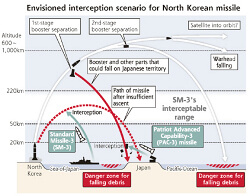Equal condescension under law
So if I understand this article correctly, if you give into the (thoroughly understandable) temptation to administer a good, sound beating-up to Barney Frank, the hate-crimes bill that just passed the House says…uh…you’d better not be thinking about his homosexuality while you’re doing it? You’d better not be thinking about what other homos might feel if they hear about it?
The legislators quoted as supporting the bill seem to be vague on what actual good it will do. (I realize that soundbites are often like that, but this seems like one of those cases in which a pithy statement of purpose shouldn’t be all that hard to make.)
Rep. Debbie Wasserman Schultz, D-Fla., a supporter of the bill, contended it was protection for gays that drove the opposition.
“I wonder if our friends on the other side of the aisle would be singing the same offensive tune if we were talking about hate crimes based on race or religion,” she said, referring to Republican opponents. “It seems to me it is the category of individuals that they are offended by, rather than the fact that we have hate crimes laws at all.”
She then recounted cases where gay people were victims of violence.
The issue was personal for openly gay Rep. Barney Frank, D-Mass., who said the bill would protect “people like me.” He said he wasn’t asking for approval from people with whom he didn’t want to associate.
Answering those who said the protections were not needed, Frank quoted Chico Marx, one of the Marx Brothers comedy team, from the movie “Duck Soup”: “Who are you going to believe, me or your own eyes?”
Eric, of course, got on this immediately:
The horrendous expansion of federal power in the “Matthew Shepard Act” serves as proof of how wrong it was to have hate crime legislation in the first place. Adding new categories only compounds the error.
Of course, few people will take the time to analyze these things. They just hear the sound bytes about how it’s “doing something about gay bashing” on the one hand, or “attacking Christian free speech” on the other.
Eric posted a great deal about hate-crimes legislation a few years ago, and as he mentions in his latest post, he took a lot of heat for it. IIRC, there were two main arguments from supporters: (1) since hate-crimes provisions only apply to sentencing guidelines, they don’t actually create a new class of crimes, and (2) hate crimes deserve special designation because they do more harm–they damage whole groups, not just their direct individual victims, and they also damage those victims more–and have been found not to run afoul of the Equal Protection Clause.
Those distinctions aren’t meaningless, but I think they mostly score more points with legal theorists than with citizens debating how we want society to run in ethical and moral terms. There’s all sorts of legislation that’s possible under the Constitution but isn’t a good idea. And judges already have latitude in sentencing if they’re dealing with seriously egregious criminals.
So I think that what it comes down to is whether you accept the premise of greater harm, which I’ve always found highly suspect. Knowing that there are psychos–or even just miscreants–out to get you may paralyze you with fear if you’re that sort of person, but it could just as easily galvanize you into forming a crime-watch group, taking self-defense lessons, or (here’s an idea) buying a gun. I’ve never once seen good evidence for the constant contention that being targeted by an attacker for being gay somehow necessarily inflicts more psychological distess than being targeted by an attacker who sees you as a Total Perosn and hates you for who you are in all your fascinating, kaleidoscopic modalities. And as for group harm, there’s a thoroughly creepy assumption that we have some sort of queer hive-mind, through which we passively receive transmissions of dread.
What I suspect undergirds a lot of this is the idea that gays deserve some sort of redress because we’ve Suffered Enough. Getting the police to take a gay-bashing seriously used to be for the most part a lost cause. Even today, growing up gay is far from easy, but a lot of the difficulty is stuff that you just have to suck up. You can’t punish parents for telegraphing that they’re disappointed they won’t get grandchildren the conventional way, or kids for keeping a classmate at arm’s length because she’s on the butch side. However, if someone commits an illegal act motivated by anti-gay animus, you can try to ensure that the law really let’s him have it and thereby give gay people some sense that balance has been restored.
But there’s a problem with that thinking–aside from the moral outrage of using an offender as a stand-in for others. It sends the message that gays have to be treated with extra-special tenderness, even by law enforcement and the court system, which is not exactly the way to defeat the old charge that we’re all drama queens. Enshrining, in federal legislation, the idea that gays are more emotionally vulnerable than others…and that the community fabric is more easily rent when we’re victimized, or something…is just a kindly motivated way of telling us yet again that we’re not grown-ups.
Added later: I’ve reinserted a sentence that got lost during cutting and pasting.
